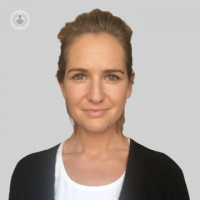Adoption
What is adoption?
Adoption is the legal process that allows children without a biological parent or guardian to acquire a legal parent and form part of a new family. Many parents who cannot have biological children have adopted because they'd like to create a family or offer a home to a child who needs one.
During the adoption process, when a child is adopted, they're subjected to various changes in their lives.

Why is it done?
Adoption is a process that is full of changes for a child and the parent. Many parents will have doubts about how they should speak to their children about being adopted, which children will face various challenges.
How do you apply to adopt?
In order to adopt, you need to apply through an adoption agency. In England and Wales, most adoption agencies are part of the local authority children's services, and in Scotland, the social work department. Some adoption agencies are voluntary organisations and can be found on the Consortium of Voluntary Adoption Agencies page.
You can find a local adoption agency via BAAF's adoption agency directory , or you can find your local authority or voluntary adoption agency on the internet. Several adoption agencies can be contacted initially, but it is only possible to carry out an adoption application with one agency.
In Northern Ireland the process differs, there you can apply to a trust outside of the area in which you reside. See Health and Social Care Adoption and fostering to find out more information about adoption and fostering in Northern Ireland.
What does adoption involve?
Psychological assistance during the adoption process can consist of family counselling or can focus primarily on the child or adolescent. In general, consultations and therapy with a psychologist in relation to adoption may be implemented for three different areas:
- Strict educational guidelines: Help the parent and adoptive children in relation to their education and personal growth.
- Family problems: Family guidance when there are problems, for example with conduct or discipline, or if there are mental health issues in the child.
- Identity problems: Lastly, they also support children and adolescents who have identity problems, who are faced with the uncertainty of having an unknown family, or those who are searching for their biological origins.
